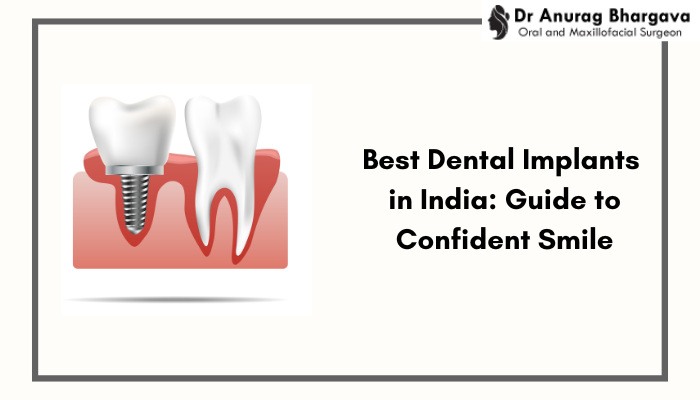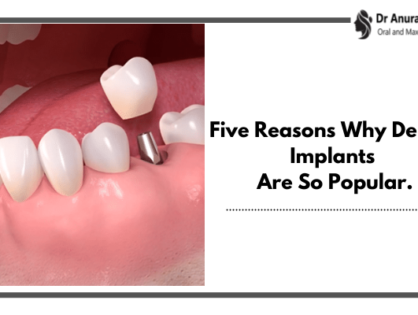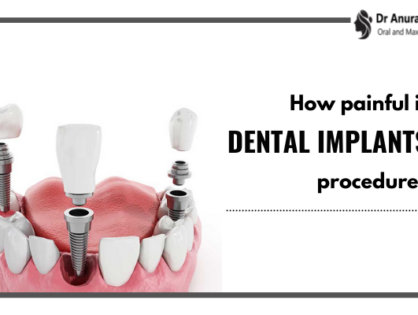Dental implants are the gold standard for replacing missing teeth. They provide a natural look and feel, offering a long-term solution for tooth loss. In India, the demand for dental implants is growing rapidly, thanks to advancements in technology and the availability of skilled professionals. If you're considering dental implants, you might be wondering where to start. This guide will walk you through everything you need to know about getting the best dental implants in India.
Why Choose Dental Implants?
Dental implants are popular for several reasons:
- Natural Appearance: They look and feel like your natural teeth.
- Durability: With proper care, implants can last a lifetime.
- Improved Oral Health: They don't affect surrounding teeth, unlike bridges.
- Comfort: Implants eliminate the discomfort of removable dentures.
- Convenience: They function like your natural teeth, making eating and speaking easier.
Why India for Dental Implants?
India has become a hub for dental tourism, and for good reasons:
- Cost-Effective: Dental implants in India are significantly cheaper than in Western countries.
- Quality Care: Indian dental clinics offer high standards of care, using the latest technology and materials.
- Experienced Surgeons: Many Indian dentists have trained and worked internationally, bringing global expertise.
- Accessibility: Major cities like Delhi, Mumbai, Bangalore, and Chennai have numerous top-rated dental clinics.
Finding the Right Dental Clinic
Choosing the right clinic is crucial for successful dental implant surgery. Here are some tips:
- Check Credentials: Ensure the dentist is qualified and experienced in implantology.
- Read Reviews: Look for patient testimonials and reviews online.
- Visit the Clinic: If possible, visit the clinic to see the facilities and meet the dentist.
- Ask Questions: Don't hesitate to ask about the procedure, materials used, and aftercare.
Dental Implants Treatment by Dr. Anurag Bhargava
Dr. Anurag Bhargava is a renowned oral and maxillofacial surgeon based in Indore, India. With extensive experience in dental implantology, Dr. Bhargava is known for his meticulous approach and commitment to patient care. He has successfully performed numerous dental implant procedures, helping patients regain their smiles and confidence.
Types of Dental Implants
Understanding the types of dental implants can help you make an informed decision:
1. Endosteal Implants
These are the most common type, placed directly into the jawbone. They are usually made of titanium and shaped like small screws. Once the surrounding gum tissue heals, a second surgery is required to connect a post to the original implant. Finally, an artificial tooth (or teeth) is attached to the post.
2. Subperiosteal Implants
These are placed under the gum but above the jawbone. They are an alternative for patients who don't have enough healthy jawbone and cannot undergo a bone augmentation procedure.
3. Zygomatic Implants
These are the least common and are used when there is insufficient jawbone for endosteal implants. The implant is placed in the cheekbone (zygomatic bone) instead of the jawbone.
The Dental Implants Procedure
Understanding the steps involved in dental implants procedure can help ease any anxiety:
1. Initial Consultation
Your dentist will evaluate your oral health, take X-rays, and discuss your treatment options. This is also the time to ask any questions you may have.
2. Treatment Planning
A customized treatment plan is created based on your specific needs. This plan outlines the number of implants required and the overall timeline.
3. Implant Placement
The dentist will surgically place the implants into your jawbone. This is done under local anesthesia to ensure comfort.
4. Osseointegration
Over the next few months, the implants will fuse with your jawbone in a process called osseointegration. This creates a solid foundation for the artificial teeth.
5. Abutment Placement
Once osseointegration is complete, an abutment is attached to the implant. This acts as a connector between the implant and the artificial tooth.
6. Crown Placement
Finally, a custom-made crown is attached to the abutment. This crown is designed to match your natural teeth in shape and color.
Aftercare and Maintenance
Proper care is crucial for the longevity of your dental implants:
- Oral Hygiene: Brush and floss your teeth regularly. Use an antibacterial mouthwash to keep your mouth clean.
- Regular Check-ups: Visit your dentist for regular check-ups and cleanings.
- Avoid Hard Foods: Be cautious with hard foods that can damage your implants.
- Quit Smoking: Smoking can interfere with the healing process and affect the success of your implants.
Cost of Dental Implants in India
One of the biggest advantages of getting dental implants in India is the cost. On average, a single dental implant can cost between $800 and $2,000. This is significantly lower than the cost in Western countries, where it can range from $3,000 to $5,000 per implant. The overall cost will depend on factors like the type of implant, the number of implants needed, and any additional procedures (e.g., bone grafting).
Conclusion
Dental implants are a fantastic solution for missing teeth, offering durability, comfort, and a natural appearance. India is a great destination for dental implants due to its high-quality care and affordable prices. By choosing the right clinic and following proper aftercare, you can enjoy the benefits of dental implants for years to come. Whether you're a local or an international patient, the best dental implants in India can give you a reason to smile confidently again.
If you're considering dental implants, take the time to research and consult with a qualified oral and maxillofacial surgeon in Indore or other major cities in India. Your journey to a beautiful, functional smile is just a few steps away!



